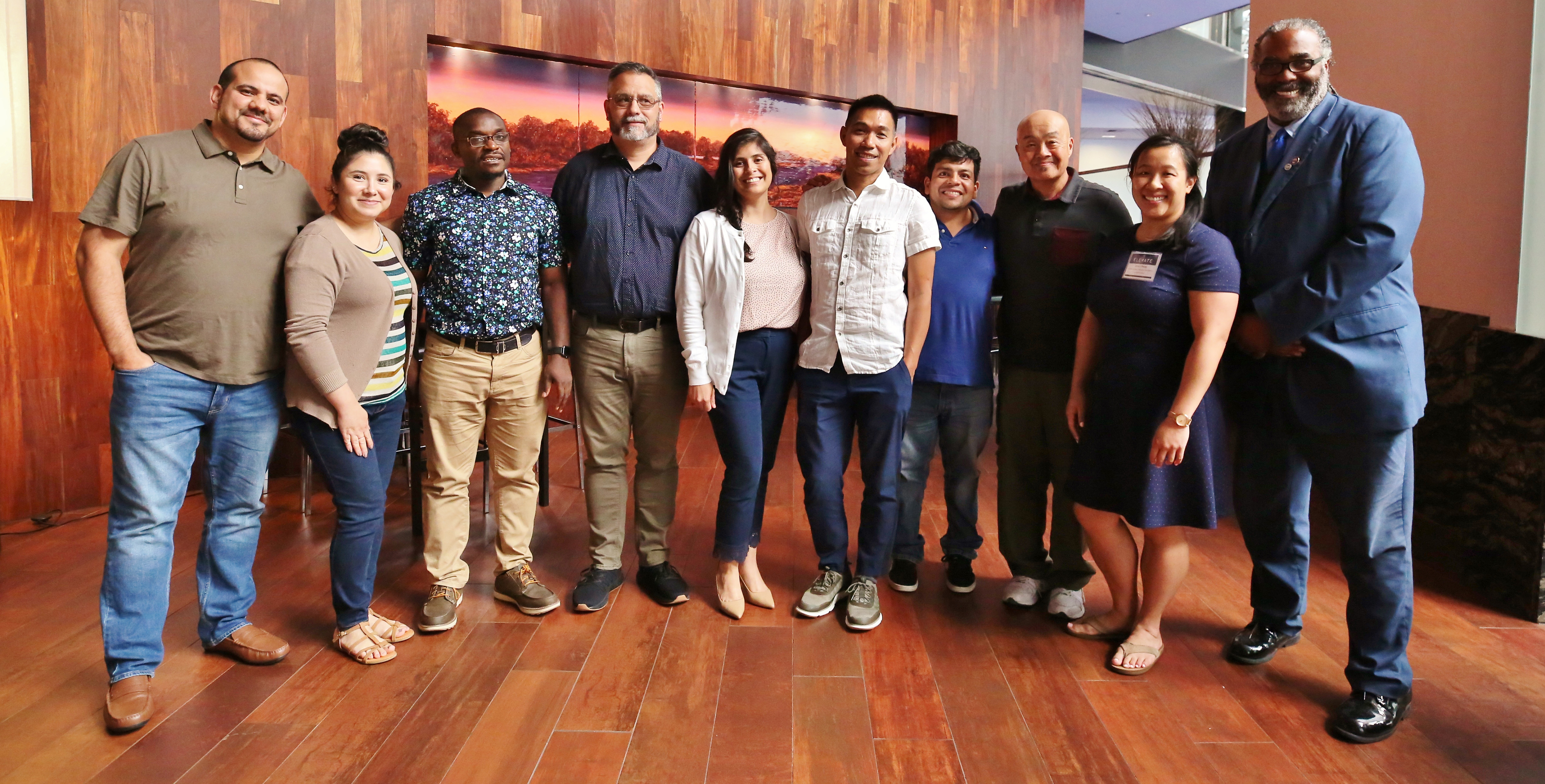New Snapshot by the Samuel DeWitt Proctor Institute and CoopLew Examines the Leadership of Diversity Officers Amid COVID-19
FOR IMMEDIATE RELEASE
Contact: Brandy Jones
Telephone: 848-932-0788
Email: brandy.jones@gse.rutgers.edu
New Brunswick, NJ. June 9, 2020— As institutions make vast changes to adjust to the “new normal” brought on by the COVID-19 pandemic, many minoritized and marginalized stakeholders feel the brunt of these changes. Oftentimes, these stakeholders have to navigate institutional modifications with limited resources to adjust. In the virtual space, the role of Diversity Officers (DOs), who have to identify fair and just strategies, support equitable policy development, and advise the institution on employing inclusive practices, has to also shift, adapt, and expand. A new snapshot developed by the Samuel DeWitt Proctor Institute for Leadership, Equity, and Justice and CoopLew illuminates the challenges and opportunities Diversity Officers and institutions are currently experiencing as they respond to the pandemic.
The snapshot entitled, “Diversity Officers: Equity in the Age of COVID-19,” offers insights into how Diversity Officers are leading, managing, and preparing in the virtual space during COVID-19. Using insights from Diversity Officers from various institutions across the country, the snapshot provides an important glimpse into how these professionals are effectively serving their constituents and addressing equity in the virtual space.
“As the higher education landscape changes in response to the pandemic, it is vital that Diversity Officers are prepared to fulfill the responsibilities of their role and feel supported as they fulfill those responsibilities, ” shared Marybeth Gasman, a lead author on the report, the Samuel DeWitt Proctor Endowed Chair, and Distinguished Professor. “In addition to the impact of the COVID-19, DOs must also work to address the recent demands from Black students related to racial justice and condemning racial intolerance. Now more than ever, institutional leadership must evaluate and assess how they plan to provide enhanced support around equity and how they intend to support Diversity Officers as they work to maintain inclusion in the virtual space and as students prepare to return to campus.”
Fifty-eight percent of Diversity Officers felt prepared to work within the virtual space, 26% felt somewhat prepared, and 16% felt ill-prepared. According to the snapshot, 36% of the DOs interviewed believe that their institution’s response to the pandemic has been great, while 47% of the DOs surveyed believe their institution’s response is good. Whether Diversity Officers felt prepared to work within the confines of the virtual space or felt that their institution's response was adequate, these DOs have enacted a number of innovative approaches to ensure institutional inclusion and to provide equitable resources and support across the campus community. Some reported learning new technologies to best serve their constituents, developing virtual programming and virtual ‘cultural spaces’ to grow a sense of community, and encouraging diversity, equity, and inclusion training for faculty and staff. DOs are also remaining vigilant with regard to accessibility and working to ensure that all stakeholders have access to resources and support in making the transition to the virtual space, regardless of learning style, ability, and socioeconomic status.
“The results of this glimpse into the current perceptions of DOs supports the glowing question about why transformative diversity leadership should be a prerequisite to excellence in higher education administration,” shared Ken Coopwood and William Lewis, Co-founders of CoopLew.
The snapshot concludes with recommendations on how Diversity Officers can continue to lead effectively and prepare for the ever-changing environment in higher education. With recommendations urging Diversity Officers to acquire new skills, embrace innovation, and sustain the core function of their work — advancing systemic transformation away from inequity, the report provides guidance that Diversity Officers can use to stay relevant, best address challenges apparent in the virtual space, and remain well.
The report is free and can be accessed here.
About the Samuel DeWitt Proctor Institute for Leadership, Equity, and Justice
The Samuel DeWitt Proctor Institute for Leadership, Equity, and Justice (Proctor Institute) is a national center that focuses on issues of leadership, equity, and justice within the context of higher education. It brings together researchers, practitioners and community members to work toward the common goals of diversifying leadership, enhancing equity, and fostering justice for all. The Proctor Institute is located at Rutgers University—New Brunswick, in the Graduate School of Education and houses the Rutgers Center for Minority Serving Institutions (CMSI). Learn more at https://proctor.gse.rutgers.edu.
About CoopLew
CoopLew is a consulting, educational, and professional development company founded to advance skill sets of diversity professionals, especially those who work in colleges and universities. Located in Charlotte and Winston-Salem, North Carolina, the company aspires to accelerate CDO executive growth and transformation through professional development, one-on-one coaching, and skill set applications. CoopLew is comprised of former diversity executives, researchers, and scholars with a combined 95+ years of on-the-job experiences. CoopLew training has pioneered experiences that address and prepare participants for the transformation of chief diversity officer lived experiences. Learn more at www. cooplew.com

